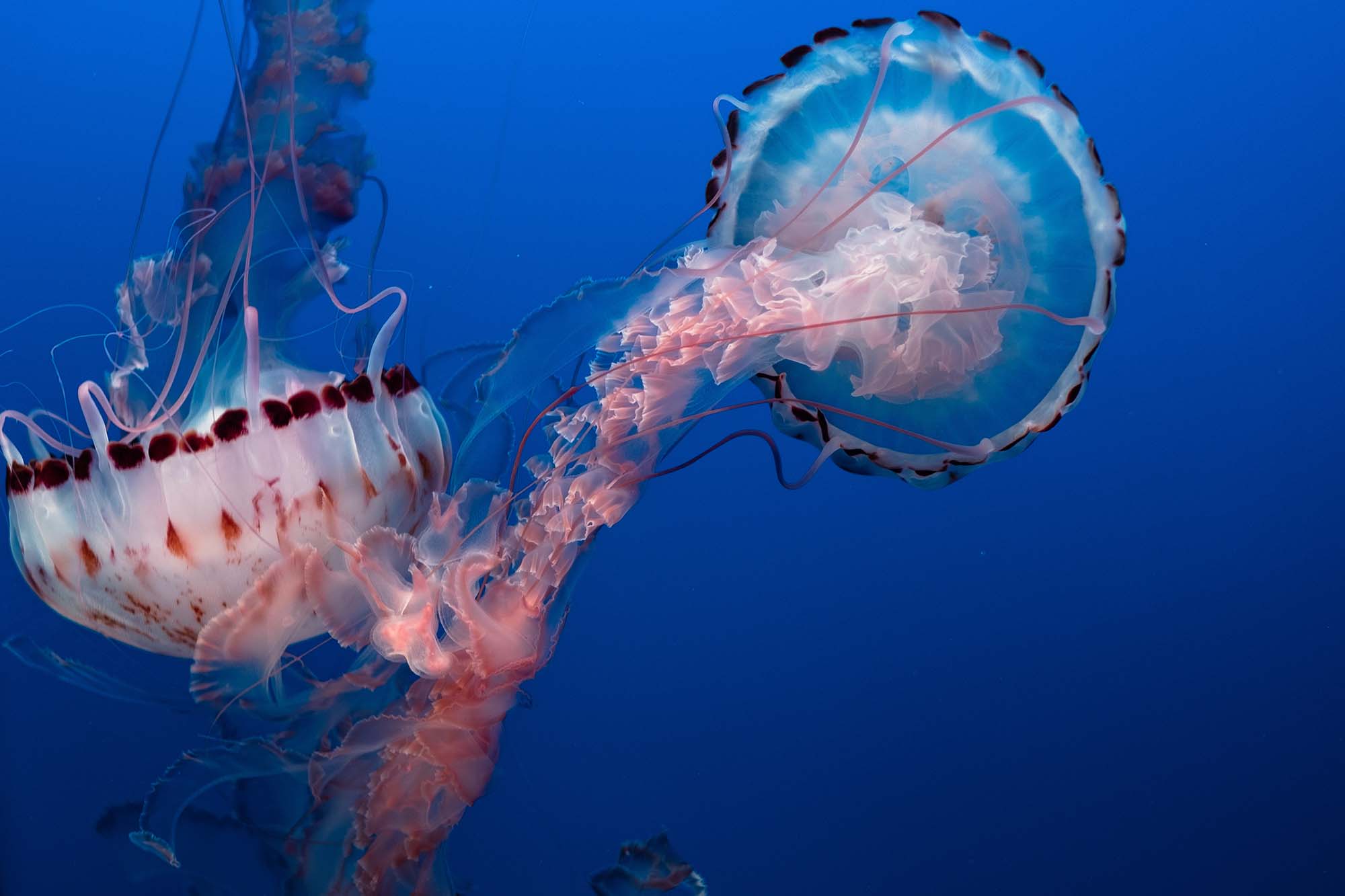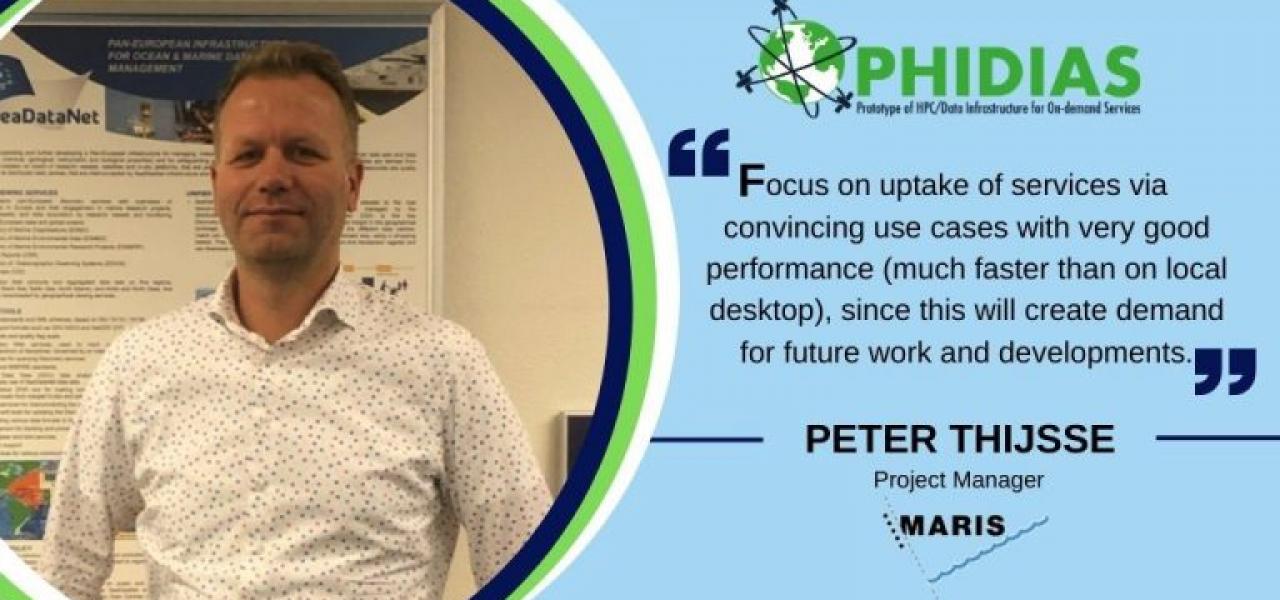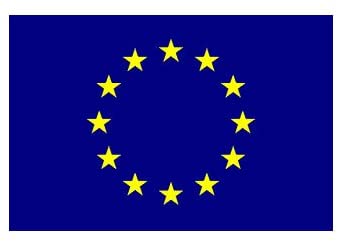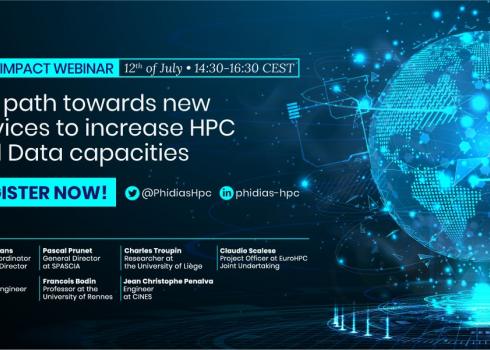MARIS' contribution to the Ocean use case
PHIDIAS and the contribution of MARIS
High-Performance Computing (HPC) is a technology which is able to process large volumes of data, for instance spatial and environmental data spanning the earth’s surface, the atmosphere and the oceans to develop. PHIDIAS is a European project that will increase the HPC and data capacities of the European Data Infrastructure and will offer a catalogue that will allow users to discover and access data, but also relevant open source software, public APIs and also interactive processing services.
The project is consisting of 13 competent consortium partners from 5 European Countries, led by CINES, the French National Computing Centre for Higher Education. Among these partners there is MARIS which will use its expertise of marine data standards, data access systems and FAIRness, in order to contribute to the Ocean use case.
MARIS is an important player in EMODNet and it is the Technical coordinator in the SeaDataNet infrastructure, working together with IFREMER on the CDI (Common Data Index) data access service where marine observation data can be searched, ordered and downloaded from 100+ data centers in Europe. SeaDataNet also generates aggregated validate datasets, and data products based on the datasets in the CDI system. These large collections will be made available as part of the Ocean use case.
MARIS’s role into the Ocean use case
In this framework, PHIDIAS will support EU Research activity by processing services for large collections and big datasets of marine data. This will be done by following the FAIR principles, which are important rules of engagement for data to be available to EOSC. MARIS, together with IFREMER, is involved in the ENVRIFAIR project in which important steps are made to increase FAIRness of marine data, and this expertise will be brought into the PHIDIAS project.
In addition, MARIS will work with IFREMER and ULIEGE on the development of a Virtual Research Environment, which will provide the users processing capacity to work with the SeaDataNet data using tools like DIVAnd, WebODV and others. The aim is to create well-accessible datapools and reach a good performance of the services using the PHIDIAS HPC solutions.
According to Peter Thijsse, Project manager at MARIS, the two challenges PHIDIAS will try to overcome are “to bring (big) data to the services (or services to the data) while data are originally distributed, and to convince the users to make use of cloud and HPC solutions over working locally with the data”.
He invites science and data scientist communities to focus on uptake of services via convincing use cases with very good performance (much faster than on local desktop), since this will create demand for future work and developments.






